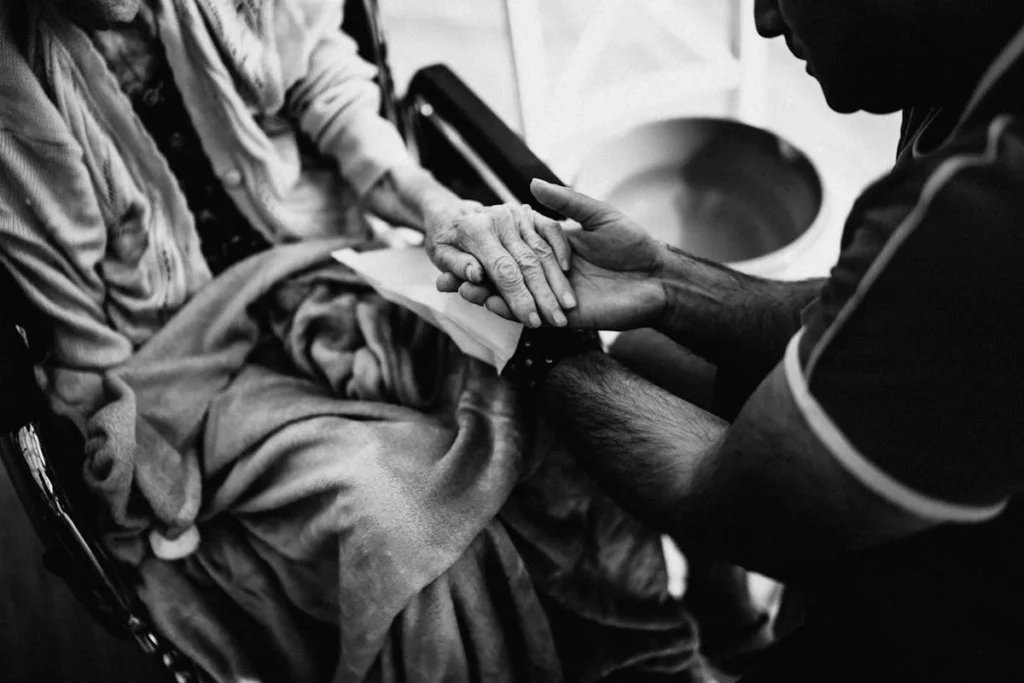
There exists a responsibility so fundamental to the integrity of our lives together that its absence renders society a mere machine—functioning, perhaps, but devoid of justice or soul. This responsibility is social stewardship. To steward is to care, not as an act of charity or sentimentality, but as the fulfillment of an obligation that arises from the mere fact of our shared existence. It is not optional. It is not supplementary. It is a human right.
Social stewardship implies the guardianship of what belongs to all: the sacredness of human dignity, the resources of the earth, the spiritual and material conditions necessary for each person to develop fully the latent truth within them. A society that forgets this obligation ceases to be society in the true sense; it becomes a marketplace, a battleground, or worse, a prison whose walls are built from indifference.
The failure of governments, corporations, and leaders to act as social stewards is not accidental. It is structural. These institutions often orient themselves not toward the common good, but toward power—its preservation, its accumulation, its idolization. The modern state, having become too enamored with the metrics of efficiency and productivity, tends to treat individuals as units, not souls. And corporations, under the tyranny of profit, elevate the shareholder above the citizen, the balance sheet above the human need. Leaders, entrusted with the moral direction of our common life, are too often seduced by prestige or paralyzed by cowardice, unable or unwilling to hear the silent cry of the invisible ones—the unemployed, the uneducated, the unwell.
This betrayal is not merely political or economic; it is spiritual. When those with power fail to steward the lives placed in their care, they rupture the moral order. They commit a form of violence that leaves no visible scar but hollows out the soul of a people. For justice is not a matter of redistribution alone—it is the condition in which each person is treated as a sacred being, not as an instrument for another’s end.
We must ask: who is the rightful steward of society? The answer cannot be found in a single person or office. True stewardship is co-productive. It arises when all take part in the creation and maintenance of the common good. A co-productive system—whether in governance, economy, or community—restores the bond between responsibility and participation. It recognizes that every individual holds a fragment of the world’s fate in their hands.
Such a system refuses the hierarchy of worth imposed by wealth or status. It honors the teacher and the farmer, the nurse and the elder, the artist and the child, as essential contributors. It does not merely “give voice” to the people; it listens, integrates, and shares power. It distributes not only resources but also decision-making. It is, in essence, an act of love made institutional.
In a co-productive society, social stewardship is no longer a noble aspiration—it is a lived reality. The burden of care does not fall only on elected officials or philanthropic foundations; it is a shared practice, woven into the everyday. The homeless person is not a statistic but a neighbor. The polluted river is not a trade-off but a wound. In such a society, to fail to act is to betray the self, because the self is not separate from the whole.
The transformation required is profound. It demands not only a reorganization of systems, but a revolution of attention. For the root of injustice is not ignorance, but inattention. We look away. We compartmentalize suffering. We rationalize inequality. Simone Weil wrote that attention is the purest and rarest form of generosity. To attend—to truly see the other—is the beginning of justice.
And so we must practice attention—not as an inward escape, but as an outward discipline. We must teach our children not only facts but compassion. We must build institutions not only with intelligence but with humility. We must live not for accumulation but for communion.
Social stewardship, therefore, is not simply a policy goal. It is the very condition for a meaningful life. Without it, civilization decays into spectacle, and community into competition. With it, even the smallest act—a shared meal, a repaired road, a listened-to voice—becomes a sacrament.
We are each called to be stewards, and we are each in need of stewardship. It is this mutuality that restores the sacred fabric of the world. A co-productive system does not promise utopia. But it offers something more enduring: a society in which no one is forgotten, no good is hoarded, and no soul is abandoned to the machinery of power.
And in that, we may begin—not to solve all, but to become human again.